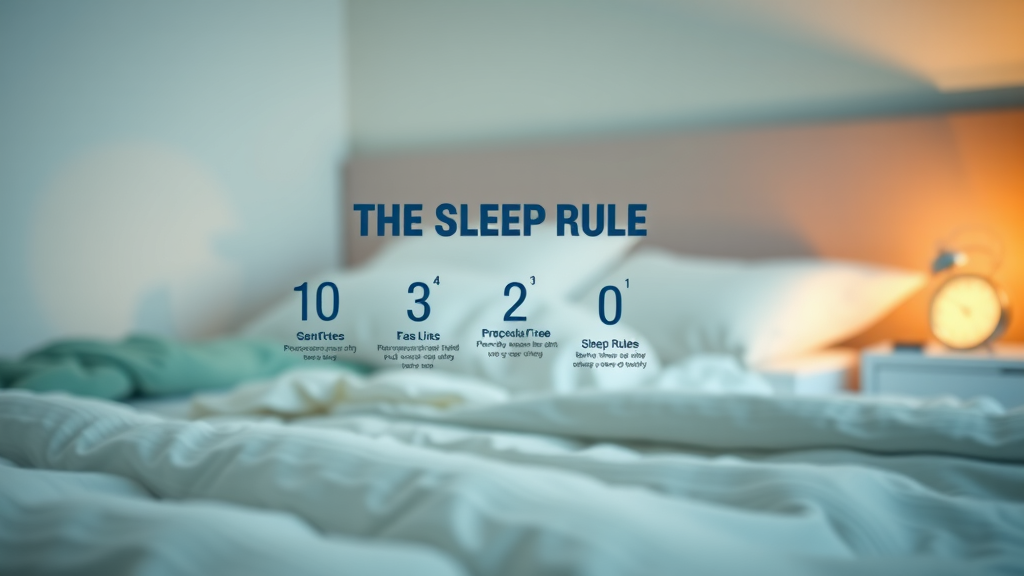In our bustling lives, the importance of sleep quality often gets overshadowed by our daily demands. Yet, mastering this vital aspect of well-being can transform not just your nights, but your days too! "Boost Your Sleep Quality with These Proven Strategies" dives into effective techniques that can help you reclaim restful nights and energized mornings. Imagine waking up refreshed, ready to tackle whatever life throws your way. Join us as we explore actionable tips that can elevate your sleep experience and enhance your overall health and happiness!
Understanding Sleep Quality
What is Sleep Quality?
Sleep quality refers to how well you sleep, encompassing various factors such as the duration of sleep, the depth of sleep, and how restful it feels. High-quality sleep is characterized by uninterrupted sleep cycles, allowing your body to go through all the necessary stages, including REM and deep sleep. Poor sleep quality, on the other hand, can lead to feelings of fatigue, irritability, and a host of health issues.
Factors Affecting Sleep Quality
Several factors can significantly affect your sleep quality. These include:
- Sleep Environment: Noise, light, and temperature can disrupt your sleep.
- Sleep Schedule: Irregular sleep patterns can confuse your body's internal clock.
- Diet: Consuming large meals or caffeine close to bedtime can hinder your ability to fall asleep.
- Stress and Anxiety: Mental health plays a crucial role in your ability to relax and sleep well.
Proven Strategies to Enhance Sleep Quality
Establishing a Sleep Routine
Creating a consistent sleep routine is one of the most effective ways to improve your sleep quality. Going to bed and waking up at the same time every day helps regulate your body's internal clock, making it easier to fall asleep and wake up feeling refreshed. Aim for 7-9 hours of sleep each night, and try to stick to your schedule even on weekends.
Creating a Sleep-Inducing Environment
Your sleep environment plays a significant role in your sleep quality. Ensure your bedroom is dark, quiet, and cool. Consider using blackout curtains, earplugs, or a white noise machine to block out disturbances. Additionally, invest in a comfortable mattress and pillows that support your preferred sleeping position.
Mindfulness and Relaxation Techniques
Incorporating mindfulness and relaxation techniques into your bedtime routine can greatly enhance your sleep quality. Practices such as meditation, deep breathing exercises, or gentle yoga can help calm your mind and prepare your body for sleep. Try to set aside at least 30 minutes before bed for these activities.
Diet and Sleep Quality
Your diet can significantly impact your sleep quality. Avoid large meals, caffeine, and alcohol close to bedtime, as they can disrupt your sleep. Instead, opt for light snacks that promote sleep, such as bananas, almonds, or herbal tea. Staying hydrated throughout the day is also essential, but try to limit fluid intake in the evening to avoid nighttime trips to the bathroom.
Physical Activity and Sleep Quality
Regular physical activity can improve your sleep quality by helping you fall asleep faster and enjoy deeper sleep. Aim for at least 30 minutes of moderate exercise most days of the week. However, try to avoid vigorous workouts close to bedtime, as they may have the opposite effect.
The Importance of Sleep Quality
Impact on Physical Health
High sleep quality is crucial for maintaining good physical health. Poor sleep has been linked to various health issues, including obesity, heart disease, and diabetes. Quality sleep helps regulate hormones that control appetite and metabolism, making it essential for weight management and overall health.
Impact on Mental Health
Sleep quality also significantly affects mental health. Insufficient or poor-quality sleep can lead to increased stress, anxiety, and depression. Prioritizing good sleep hygiene can improve your mood, cognitive function, and overall mental well-being.
People Also Ask
What should my sleep quality be?
Your sleep quality should allow you to feel rested and alert during the day. Aim for 7-9 hours of uninterrupted sleep each night, with a good balance of REM and deep sleep stages.
What is better, REM or deep sleep?
Both REM and deep sleep are essential for restorative sleep. REM sleep is crucial for memory consolidation and emotional regulation, while deep sleep is vital for physical recovery and growth. A healthy sleep cycle includes both stages.
What is the 10 3 2 1 0 sleep rule?
The 10 3 2 1 0 sleep rule suggests that you should stop consuming caffeine 10 hours before bed, avoid heavy meals 3 hours before sleep, limit work-related activities 2 hours before bed, reduce screen time 1 hour before sleep, and aim for 0 distractions in your sleep environment.
How can I improve sleep quality?
To improve your sleep quality, establish a consistent sleep routine, create a comfortable sleep environment, practice relaxation techniques, and maintain a healthy diet and exercise regimen.
What You'll Learn
- Understanding the concept of sleep quality
- Identifying factors that affect sleep quality
- Implementing strategies to improve sleep quality
Tables
| Factor | Impact on Sleep Quality |
|---|---|
| Sleep Environment | High impact; noise and light can disrupt sleep. |
| Sleep Schedule | Moderate impact; irregular patterns can confuse the body. |
| Diet | High impact; certain foods can promote or hinder sleep. |
| Stress Levels | High impact; stress can prevent relaxation and sleep onset. |
Quotes
"Sleep is the best meditation." - Dalai Lama
Lists
- Top 5 Tips for Better Sleep Quality
- Establish a consistent sleep schedule.
- Create a comfortable sleep environment.
- Practice relaxation techniques before bed.
- Limit caffeine and heavy meals in the evening.
FAQs
What is the ideal sleep duration for adults?
The ideal sleep duration for adults is typically between 7 to 9 hours per night, depending on individual needs.
How does technology affect sleep quality?
Technology, particularly blue light emitted from screens, can interfere with the production of melatonin, making it harder to fall asleep and reducing overall sleep quality.
Key Takeaways
- Sleep quality is essential for overall health.
- Establishing a routine can significantly improve sleep.
Conclusion
Improving your sleep quality is a vital step towards enhancing your overall health and well-being. By implementing the strategies discussed, you can create a restful environment, establish a consistent routine, and prioritize relaxation techniques. Remember, quality sleep is not just a luxury; it is a necessity for a healthy and fulfilling life.
Call to Action
Ready to take control of your sleep? Start implementing these strategies tonight and experience the difference in your energy levels and overall health. Sweet dreams await!
Video Section
Watch our video on Expert Tips on Improving Sleep Quality for more insights and practical advice.





 Add Row
Add Row  Add Element
Add Element 



Write A Comment